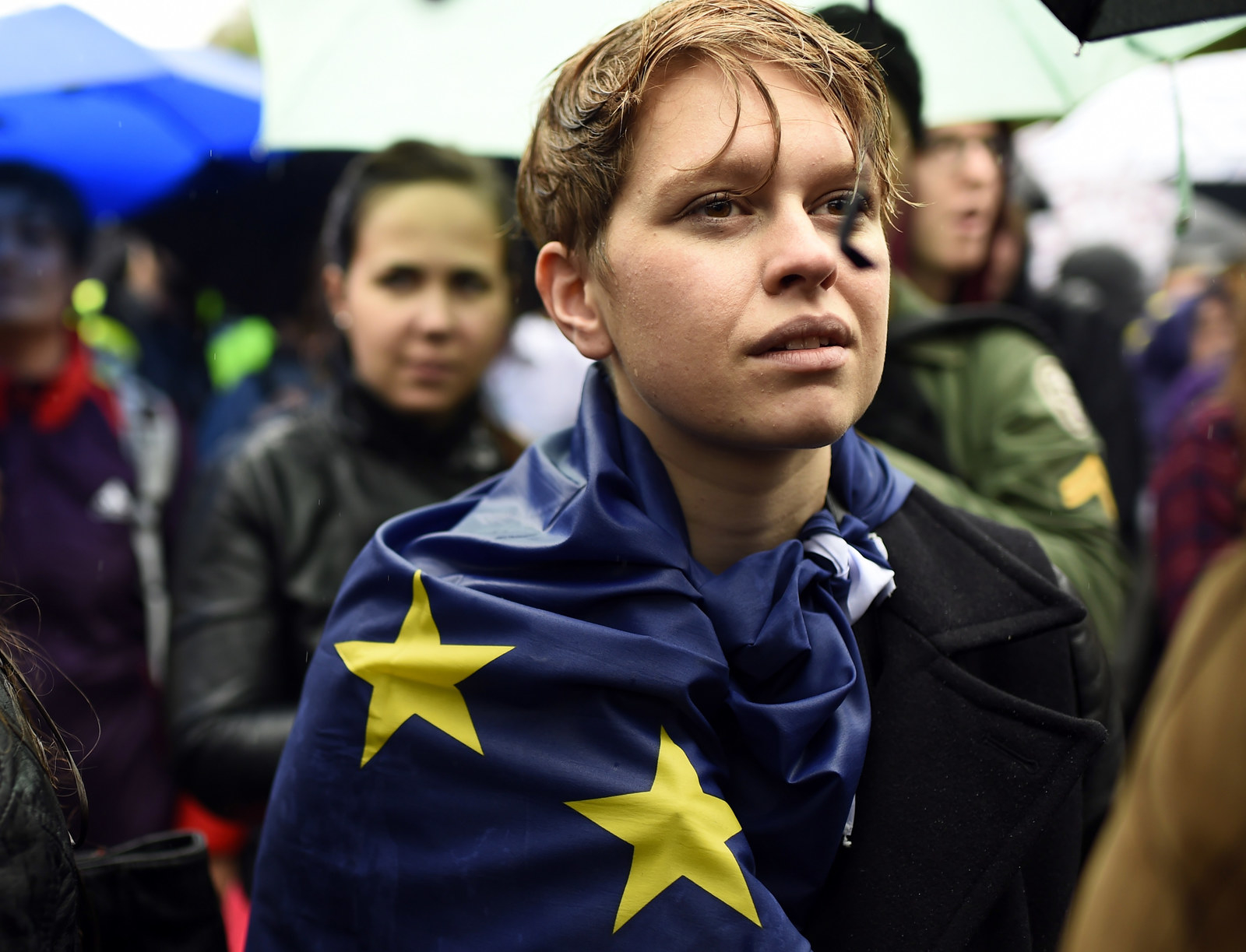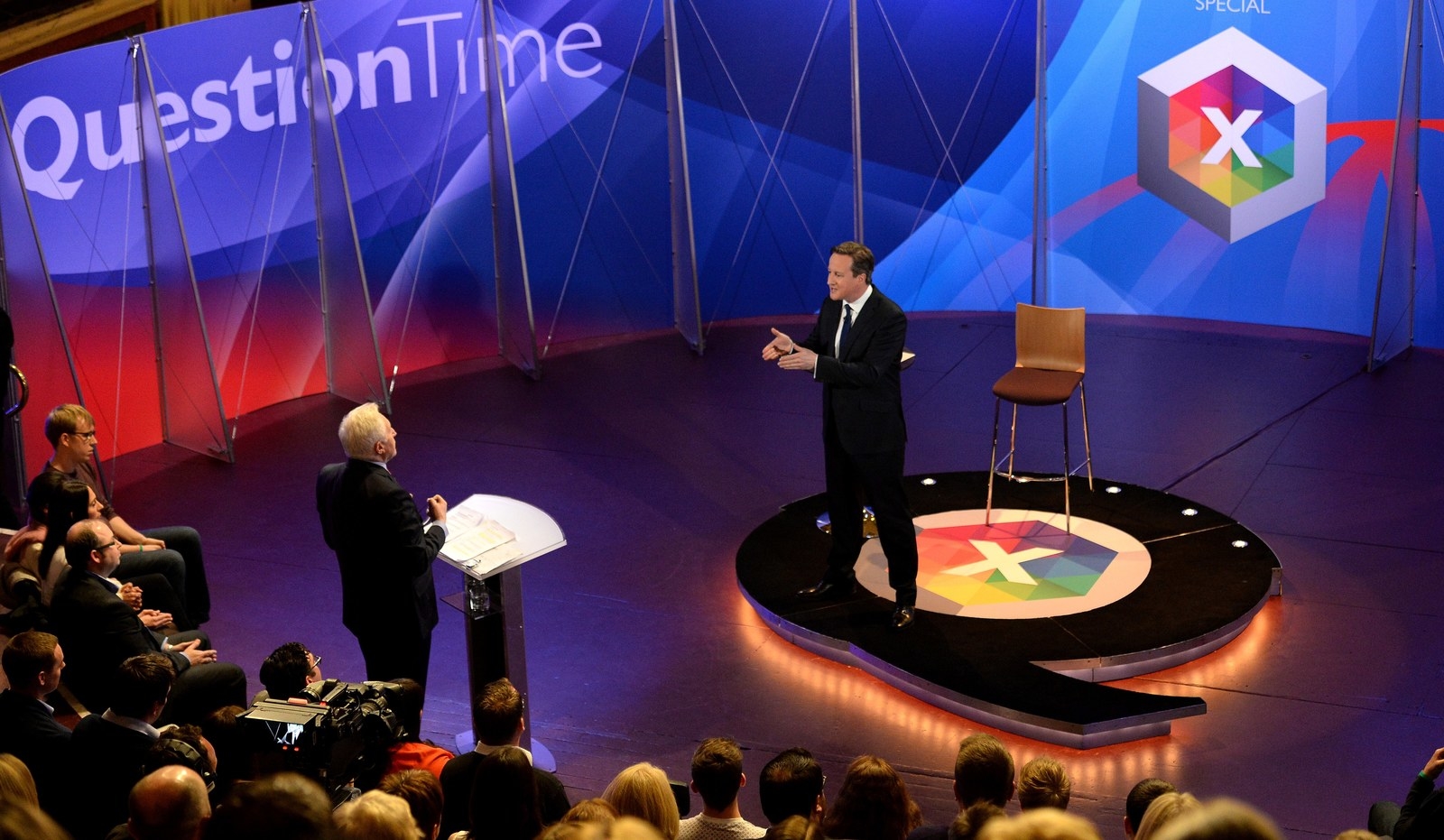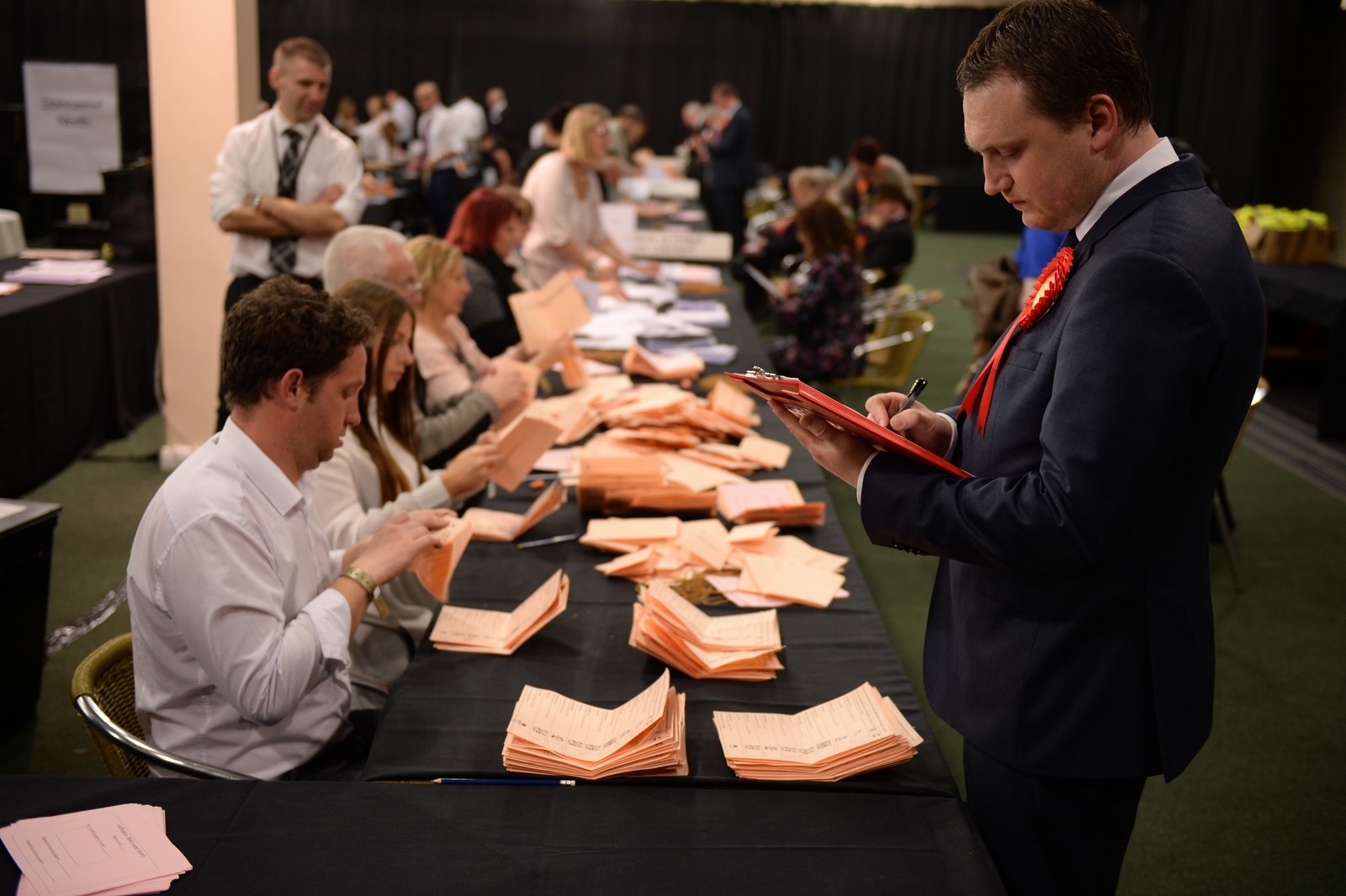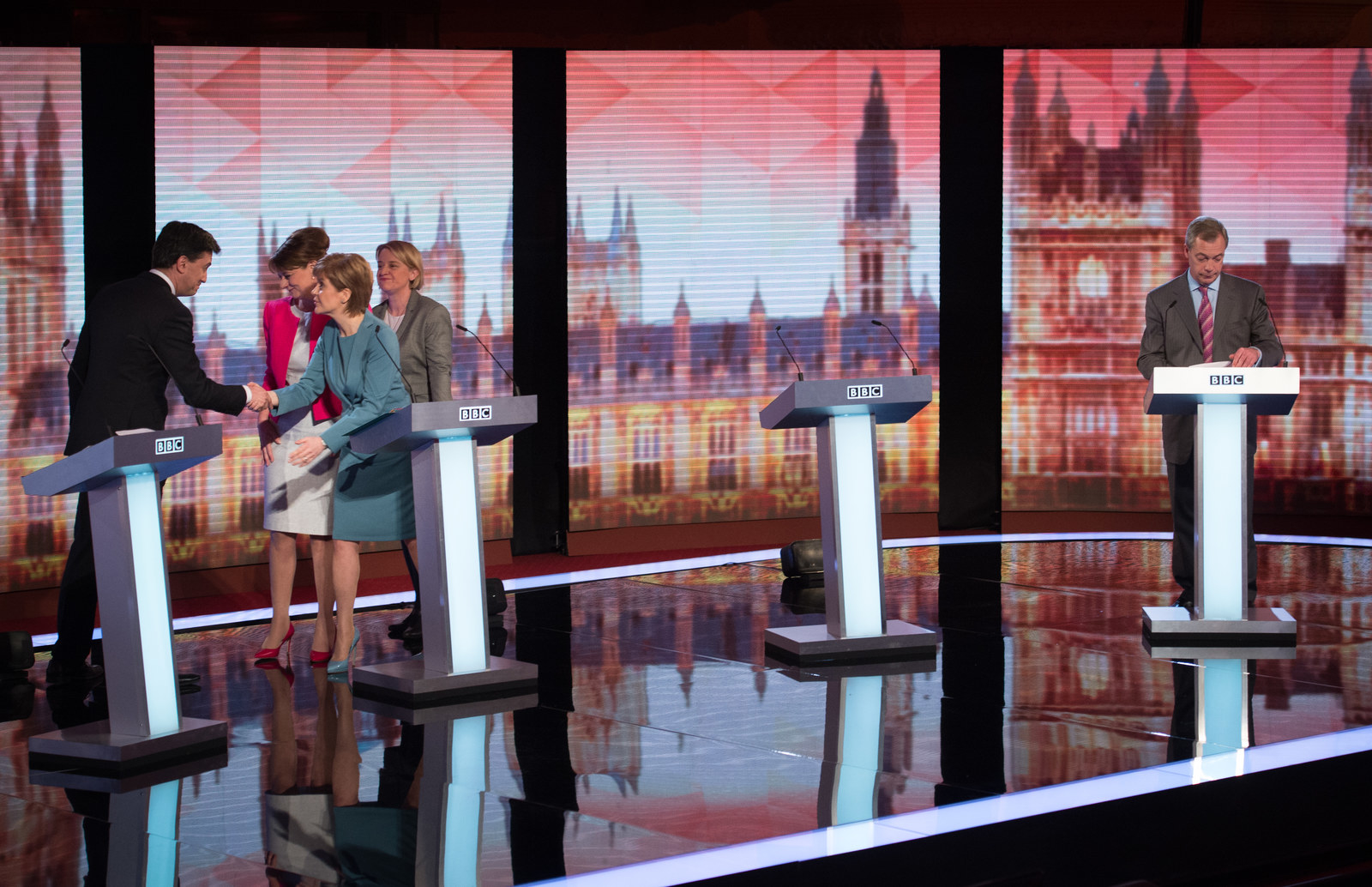"From the moment we heard Theresa May was going to make a statement, there was a conversation behind the scenes about what it could be,” Esme Wren, Sky's head of politics, told BuzzFeed News.
“We ran through various moments of significance, whether it could be something related to the queen, or to terror… And within that mix we thought, Could there be an election? On my behalf there was an element of, Oh, I hope not."
Along with the country, TV broadcasters were taken by surprise when the prime minister announced in April that she would be seeing a seeking an early election on 8 June instead of waiting until 2020.
News channels can often take over a year to plan their general election coverage. This time they were given just seven weeks, and are perhaps under more pressure than usual as the nation struggles to get to grips with another vote being called. “This snap election surprised the country and election night is bound to be one of the most closely followed in recent times,” said James Harding, the BBC’s director of news, after the announcement was made.
BuzzFeed News spoke to the three main broadcasters and found that in the scramble to shift budgets and resources, they have had to rely on what they did during the EU referendum and the last election, and in some cases have had to drop other plans.
“We’ve got some new programme formats that we want to launch on the channel soon but we’ve had to rejig some of that because the election is the priority,” Sam Taylor, executive editor of the BBC News Channel, told BuzzFeed News. “Some stuff we’re going to carry on with on the same timetable, like relaunching our sport advert in a few weeks, that’s not affected. … But we’re not spending as much time at the BAFTA TV awards on the red carpet as we might have done otherwise.”

Sky's Wren said her team was forced to turn ideas that they expected to develop over years into a reality far more quickly. "Given May’s majority [a general election] would have been inevitable at some stage, [but] we hadn’t foreseen it was going to be that quickly," she said. "We'd had discussions about the kind of stuff we wanted to do, but obviously when she made that statement in Number 10 we were surprised, but within 24 hours we were pretty much in good shape in terms of what we wanted to do and how we’d deliver it."
"You spend six months planning for 2015 and everyone was worrying about it, and coming up with all these ideas… How do you do it in a few weeks?" Taylor said.
For ITV News editor Geoff Hill, the snap announcement was no less stressful. "Normally, we’d turn our attention to an election more than a year before it’s meant to happen," he said. "We crammed about six months’ worth of meetings and decisions in less than a week."
A general election usually marks an opportunity for investments in new virtual graphics, studio makeovers, or fresh presenting line-ups. This time, contingency budgets are being used – the money put aside for coverage of unexpected major events like wars.
"Luckily, there’s always contingency for elections,” Wren said. “There’s money set aside for how we present data, how many [live shows] we get to do, where we project our results, and so on.
"I think we’ve been lucky that because of the massive task of Brexit, we had a lot of resources and thinking in place in terms of how we cover a massive story. Fortunately for me, I was able to expand my team. I was able to recruit recently, because we knew that we had the referendum.”

And of course, using emergency money and having less time can mean fewer of the frills that come with a channel going all-out on election coverage. Taylor said he regrets that the BBC will not have its own equivalent of the battlebuses political parties send around the country during elections. "We haven’t got any special vehicle," he complained, tongue-in-cheek.
"I think there’s no time for us to buy a new bus. I’ve given up on expecting a bus driving around the country – that’s the sort of thing you get when you have a year to plan it."
The reduced time frame means you’re likely to see some familiar setups in terms of studio designs and digital graphics to show voting predictions and outcomes. “Because of the time frame available, our broad thought was that we need to draw from the experience and the studio graphics and set designs of programmes from 2015 and 2016,” Taylor said, “because in the seven weeks available, you don’t really have the time to do storyboarding, concept design, blue-sky thinking, have a whole rethink.”
All the broadcasters BuzzFeed News spoke to were grateful to be able to fall back on the resources built up from several eventful years in UK politics. "From my perspective as editor," Hill said, "we’ve done the 2015 general election, we’ve done the 2016 referendum, so there’s a lot of very valuable recent experience, and we clicked into gear. There’s a process that you go through, and we just instinctively got on with it.
“Of course, there’s a massive news gathering operation that kicks in – we’ll have a separate office for the election unit, we’ll have a whole set of meetings where we make decisions about graphics and studios and locations and guests and technology and stringers and exit polls and psephology and social media and data… We traditionally would do that over a year or even longer, because you have a fixed date. We’d start with big thought meetings about how the studio might look and how the graphics might look, and what could we do, let’s look at the last election programmes, what can we build on, how has technology moved on.”

As priorities are weighed up, the bulk of investment will go into results night coverage. “There’s obviously a conversation about what we want in terms of making the coverage distinct, and getting special access, special programmes," Wren said, "but also massive emphasis on election night because it’s incredibly resource-heavy."
Just two days after May's shock announcement, the BBC had revealed its plans for results night, confirming it would “once again be a full results service beginning when the polls close going through to the following evening”.
David Dimbleby, whose first general election all-nighter for the BBC was in 1979, was supposed to have presented his last in 2015. But now he’ll return once more to front the results, joined by Mishal Husain, Emily Maitlis, and Jeremy Vine. ITV's coverage, meanwhile, will be hosted by Tom Bradby. Sky had not yet announced its election night plans at the time of publication.
Broadcasting in so many different places at the same time involves a remarkable amount of planning, Hill said: Locations have to be scouted, and logistics have to be established. "There’s many places that you have to be at – Downing Street, the major parties’ headquarters, the very important seats where the big characters in politics are standing for re-election, the leaders, and there’s also a whole raft of significant swing seats and bellwether seats.”
Quicker than usual, they have had to find out if it’s even possible to broadcast from, say, a particular town hall or a library. “Nowadays, it’s not entirely satellite technology any more,” Hill said. “In a sports hall in a constituency in the Midlands, can we get phone signal there? We’ve got lots and lots of boots on the ground, people running around and trying to find out where works."

Another challenge has been May’s refusal to take part in any televised leaders' debates, which have now become a hallmark election TV event. Despite Labour leader Jeremy Corbyn not being expected to take part either, ITV will still be hosting a live debate on 18 May. The BBC this week announced it will be getting round the issue by hosting two Question Time specials, on 2 June and 4 June, which will see May, Corbyn, Sturgeon, and Farron answer questions from the audience consecutively rather than debating. The broadcaster will also host a seven-way debate between “senior spokespeople” from the major parties on 31 May.
The three broadcasters were tight-lipped about what viewers should expect more broadly from their election programmes, saying they are finalising plans and aiming for "big reveals" closer to the time.
But Taylor did confirm that Reality Check, the BBC's fact-checking operation, would be used and promoted more between now and 8 June. The service has a new weekly slot on the Sunday News at Ten bulletins. "We are going further on Reality Check than we’ve ever done before," he said, adding that the team has been expanded since the EU referendum. "The lesson we’ve learnt is that we’ve done a lot of reality checking over the years but … people need to notice that we’ve done it."
In an era of fake news and misinformation online, the BBC will also reuse its referendum hashtag #BBCAskThis, which will allow viewers to ask experts questions about the election. “It worked really well for us during the referendum ... putting our experts on the spot,” Taylor said.
Despite the time pressure on planning, Sky is aiming to increase the number of local areas it broadcasts from on the night of the election compared to 2015, Wren said. "We’re always as ambitious as we can be in terms of how many live events we can take in. Last time we had this project called Sky 150 – we were live at 150 of the counts, and we want to increase that by some way for the election.”

Taylor said the BBC would be making its broadcasts more regional. "One of the key lessons we learnt from the 2015 election is: Did we really make the most of our intelligence based in the regions of the UK? The BBC has all these political reporters and political editors who are really close up to what’s going on in specific seats, and we use them a lot, but we think we didn’t use them enough."
Ultimately, Britain’s TV viewers may have the recent political turmoil of the country to thank for the broadcasters’ ability to swing into action so quickly.
"When we know we need to deliver under time pressure, it’s doable,” Wren said. Ahead of the 2015 election, she was told with just 10 days' notice that then PM David Cameron was available for what became Sky’s Battle for Number 10 programme. “We turned it around, much to everyone’s surprise. [Number 10's then head of communications] Craig Oliver had said, ‘Right, have him but you’re going to have him literally next week.’"
As Taylor noted of the fact that the BBC will be reusing some elements of its graphics from 2015: "It’s not as bad as it looks, because we’ve basically been on permanent election footing for two and a half years.”

